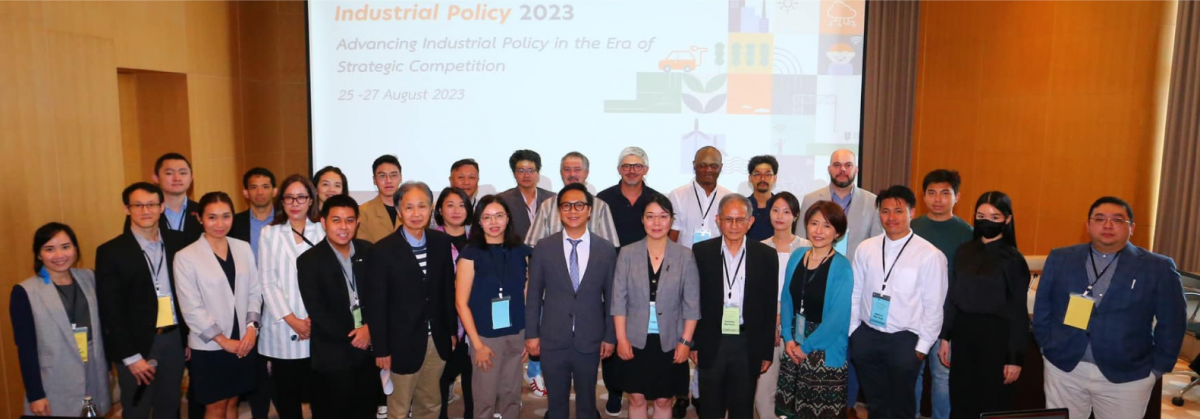/Question%201/poster%20ICIP_800x800_kanokchat%20buranasiri.jpg)

On 25–27 August 2023, Science, Technology and Innovation Policy Institute (STIPI), King Mongkut’s University of Technology Thonburi (KMUTT) organised an international conference on industrial policy, entitled Advancing Industrial Policy in the Era of Strategic Competition.
The event was also supported by the ERC Starting Grant research programme Green Industrial Policy in the Age of Rare Metals (GRIP-ARM) under Grant No. 950056; the Department of Public and International Affairs, City University of Hong Kong; and the Early Career Research Scheme funded by the Research Grants Council of the Hong Kong Special Administrative Region, China (Project no. CityU 21606520). It was a hybrid conference, taking place both on-site at Anantara Riverside Bangkok Resort and Avani+ Riverside Bangkok Hotel and also online. The event was also broadcasted live on Facebook.
The organising team comprises Kahee Jo (Germany), Guanie Lim (Japan), Jewellord Nem Singh (Netherland), Bank Ngamarunchot (Thailand), Pattarat Phantprasit (Thailand), Jesada Temaismithi (Thailand), Kritdikorn Wongswangpanich (Thailand), and Linda Tjia Yin Nor (Hong Kong).
It was an honour for us that Ha-Joon Chang and Antonio Andreoni, from SOAS University of London, UK, gave a keynote talk entitled Industrial policy reloaded: new policy domains and global competition, that describes issues and evolution of industrial policy on a broader domain and in the global context, whilst Patarapong Intarakumnerd, from National Graduate Institute for Policy Studies (GRIPS), Japan, gave a keynote talk, entitled Industrial policy: Southeast Asia’s selected experiences, that focuses more on the region. CHEN Ling, from Tsinghua University, China; Gale Raj-Reichert, from Bard College Berlin, Germany; and Sirinya Lim, from Office of National Higher Education Science Research and Innovation Policy Council (NXPO), Thailand also joined us at a roundtable discussion to discuss industrial policy practices in Asia Pacific and lessons that the rest of the world can learn from the region.
Furthermore, twelve academics and policy practitioners from seven countries joined us on-site, whereas eight from four more countries joined us online. Papers in the conference, in addition to those that discuss the concept, frameworks, paradigms and tools for industrial policy, include analyses of novel sectors such as renewable energy, electric vehicles, batteries, vaccines, semiconductors, as well as specific countries and regions such as Canada, Chile, China, the EU, Ghana, Japan, Mongolia, Rwanda, South Korea, and Taiwan. The event was also registered by over 140 participants who wished to join online.